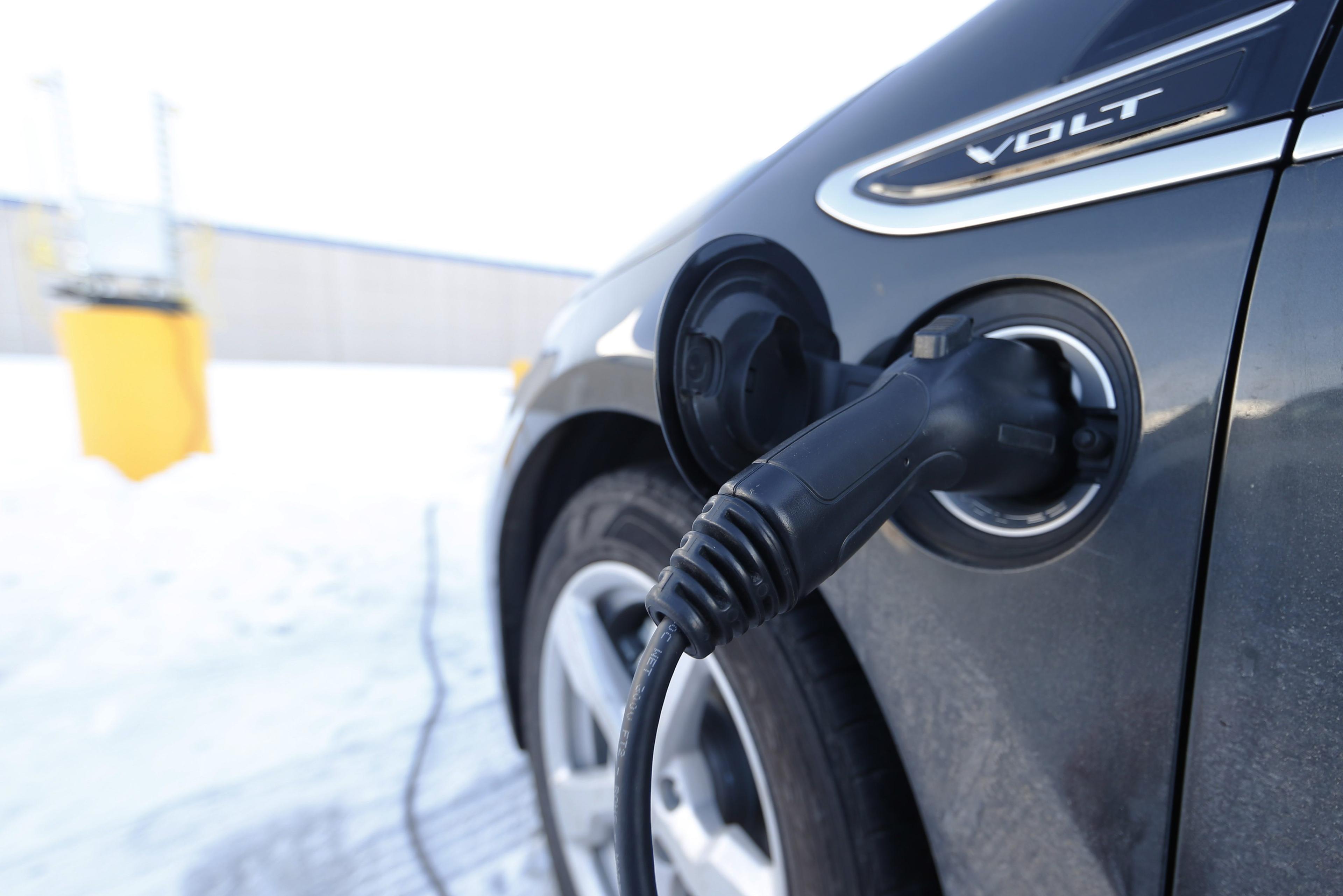
Here’s one way to quantify the magnitude of Colorado’s bet on electric vehicles: It will soon be possible to qualify for discounts worth $21,000.
Add an additional rebate from Colorado’s largest power provider, a resident buying a new plug-in car could soon save a head-spinning $26,500.
That’s not a typo.
Colorado’s current $5,000 tax credit is already the most generous state-level incentive available to all residents. With additional programs set to go live in the next few months, the state is now poised to test the full power of EV discounts — a pillar of the statewide plan to reduce carbon emissions. Gov. Jared Polis is betting the strategy can help reach a goal of putting nearly a million plug-in vehicles on the road by 2030.
The rebates and credits each come with different restrictions, which makes it tricky — but technically possible — to qualify for the full suite of discounts. If that’s you or someone you know, please email [email protected]. CPR News is interested in following a customer through the car-buying experience in early 2024 to report on the process and any challenges along the way.
Here’s CPR’s guide to all of Colorado’s current and upcoming electric vehicle discounts:
Why is Colorado offering so many EV incentives?
Gov. Jared Polis has put electric vehicles at the center of the state’s climate plans. His administration has set a goal to put 940,000 light-duty electric vehicles on the road by 2030, a vast increase from the 86,000 plug-in cars currently driving around the state.
To meet those targets, drivers will need to start buying electric vehicles at a far faster pace. In the second quarter of 2023, EVs accounted for about 13 percent of overall car sales. The governor’s administration has set a goal to reach 25 percent by 2025.
In the meantime, the state’s top climate policymakers are against adopting Calfironia’s plan to ban gasoline car sales by 2035. While the state might require automakers to sell a higher percentage of electric vehicles, it’s taking a carrots-over-sticks approach by investing in car chargers and generous purchase incentives.
How can I qualify for the Vehicle Exchange Colorado program?
The new program is set to go live sometime in August. It’s meant to offer an extra incentive to low- to medium-income residents ready to part with an aging gas guzzler.
An eligible trade-in vehicle must have failed an emissions test or be at least 12 years old. In exchange, qualifying car buyers can get a $6,000 point-of-sale discount off a new plug-in hybrid or electric vehicle or $4,000 off a used plug-in hybrid or electric vehicle. More details on the upcoming program can be found here.
Is the federal rebate available for all plug-in hybrid and electric cars?
Not at all. The full $7,500 federal rebate is only available for vehicles meeting tough domestic supply chain requirements. That excludes many popular options like the plug-in Toyota Prius.
You can check if other vehicle models qualify at this IRS website.
What if the credits add up to more than I owe in taxes?
The answer here depends on the difference between “refundable” and “non-refundable” tax credits. And it’s also why it’s unlikely someone can qualify for all of the available rebates listed above.
Let’s start with Colorado’s tax credit. Both the $5,000 basic credit and the $2,500 additional rebate are “refundable,” which means you’ll receive the full amount no matter the total amount owed in state taxes.
In contrast, the federal credit is “non-refundable,” so you can only wipe out your final tax bill and nothing more. So, if you owe $3,000 in federal taxes, you’d only get $3,000 back from the government, not the full $7,500.
The two other programs, Xcel Energy’s rebates and Colorado’s vehicle exchange credit, are reserved for low-income car buyers. It’s unlikely those buyers will have a large enough federal tax bill to unlock the full federal credit, but it’s not impossible.
For example, someone could qualify for both programs if they make less than $70,240 annually in Boulder County. As a single filer, that person would owe the federal government around $10,700 from their earnings in 2023, according to the latest IRS tax bracket estimates. That would allow them to take full advantage of the federal electric vehicle tax credit.
Is it really possible to combine all these tax credits and rebates at once?
Not yet, but it could be soon.
At the moment, accepting the $5,500 rebate from Xcel Energy disqualifies a purchaser from receiving the state electric vehicle tax credit.
Colorado’s largest utility now wants to loosen those restrictions. A new electric vehicle plan submitted to state regulators in May would let ratepayers combine both incentives. Car buyers could also qualify if they live in “higher emissions communities” like Commerce City or south Greeley, which have traditionally faced elevated air pollution levels. A map of those areas can be found here.
State utility regulators are now reviewing the company’s updated Transportation Electrification Plan. If approved, it would likely take effect sometime in 2024.
Are these discounts available when I buy a car? Or would I need to wait to apply or file my taxes?
It depends on the discount.
For the basic state and federal tax credits, car buyers must purchase the vehicle first and then claim the discounts by filing forms along with their annual taxes. Colorado is working to change that by allowing dealers to offer the rebate as a point-of-sale discount starting in 2025.
Other discounts are available upfront. Xcel Energy allows customers to apply to pre-qualify for its rebates, which can then be brought to participating dealerships for a point-of-sale discount. Colorado’s vehicle exchange program will also offer point-of-sale discounts through participating dealerships.







